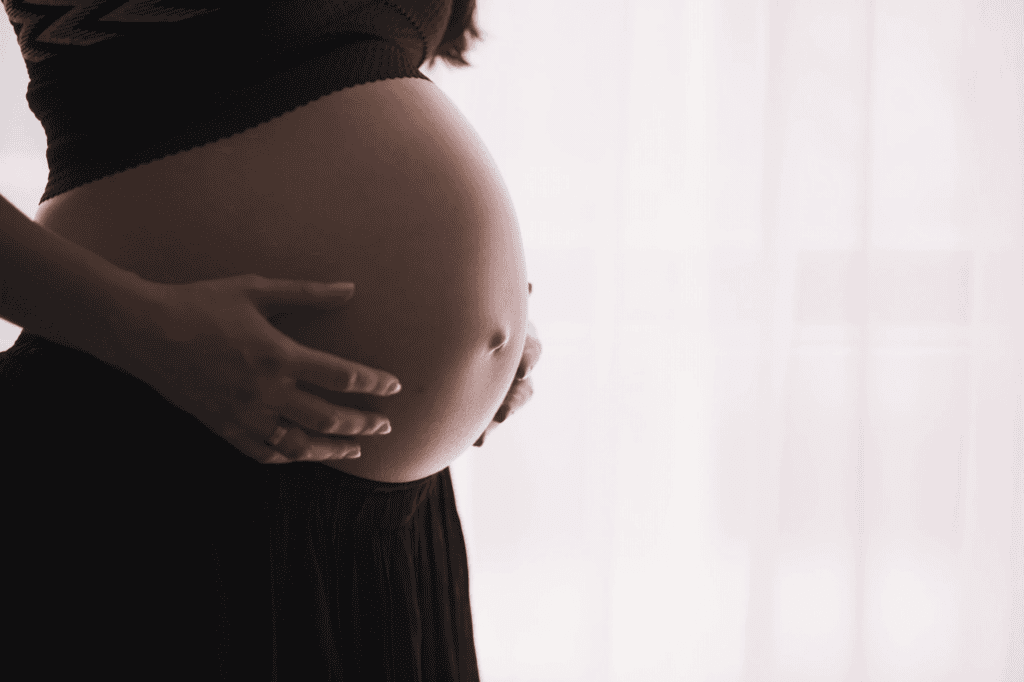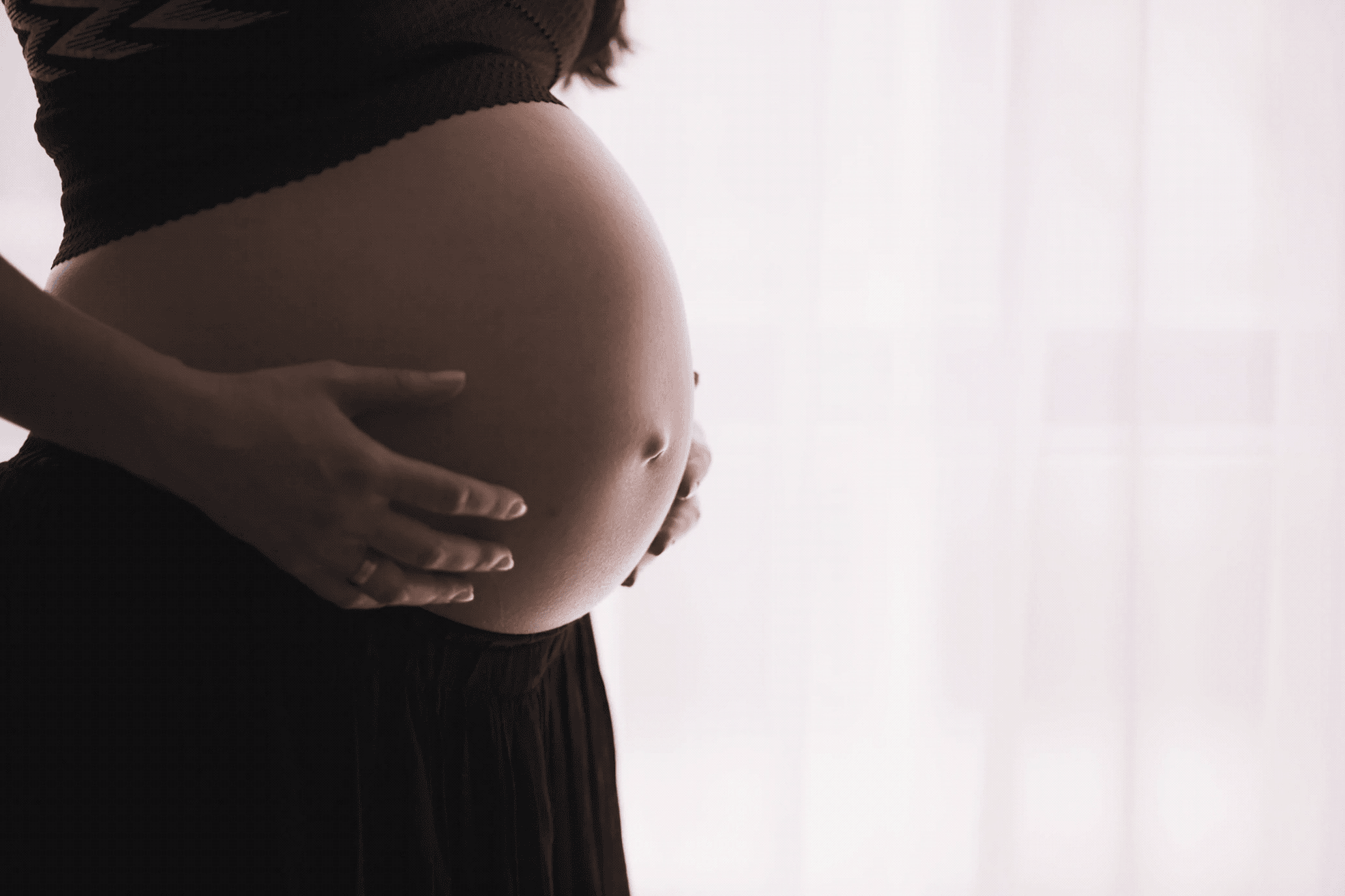During the third trimester of pregnancy, a woman’s body undergoes several changes, including considerable alterations in the hardness and tightness of her abdomen. It is a critical stage in which the baby grows rapidly, exerting pressure on the mother’s abdomen. Understanding these dynamics is critical for expectant women seeking a safe pregnancy journey.

Changes in the belly during the third trimester
The third trimester of pregnancy is a period of extraordinary growth and development for both the baby and the mother. As the baby gains weight and grows in size, the belly naturally expands, resulting in changes in hardness and tightness. The uterus, which contains the growing baby, grows to suit its increased size. This expansion exerts strain on the abdominal muscles, causing them to expand and occasionally feel tight. The developing uterus also pulls against the skin, stretching it and sometimes making it feel tight.
The belly’s hardness and tightness increase throughout the third trimester. It represents the progression of the pregnancy and the preparation of the body for childbirth. However, it is crucial to note that each woman’s experience may differ, and some will feel these changes more strongly than others. It is also critical to differentiate between typical alterations and dangerous problems that necessitate medical intervention.
Factors that affect belly firmness and tightness
Several variables might affect the firmness and tightness of the stomach during the third trimester of pregnancy. One key factor is the baby’s posture. As the baby grows, it may shift positions within the uterus, making certain areas of the belly feel firmer or tighter. Furthermore, the amount of amniotic fluid around the fetus can influence the impression of firmness. A higher amount of fluid may result in a softer feel, whilst a lower amount may cause the belly to seem harder. The amount of weight acquired during pregnancy can also affect the firmness and tightness of the abdomen.
Another essential issue to consider is the effect of pregnancy hormones. Relaxin, a hormone secreted during pregnancy, is essential for preparing the body for childbirth. Relaxin helps to relax the ligaments and muscles, especially those in the abdomen. This hormonal influence might make some portions of the belly seem softer, while others remain solid. It is natural for the tummy to vary in hardness and tightness as a result of relaxation.
Common concerns about belly firmness and tightness
During the third trimester, expectant women’ bellies’ hardness and tightness alter, which raises questions and concerns. One typical issue is if the tummy is becoming too big or too tiny. It is crucial to note that each pregnancy is unique, and belly size might differ between individuals. However, if there are substantial variations from normal growth patterns or concerns about the baby’s health, it is critical to talk with a healthcare expert.
Another source of concern could be the abrupt onset of severe abdominal tightness or pain. While some discomfort is expected throughout the third trimester, severe pain or tightness coupled by other symptoms such as bleeding, fever, or decreased fetal activity should not be overlooked. These could be symptoms of problems that require immediate medical intervention.
Tips for maintaining belly firmness and tightness
Maintaining the firmness and tightness of the tummy throughout the third trimester can help with general comfort and wellbeing. Here are some suggestions to aid expecting women in this regard:
Exercising throughout the third trimester for belly strength: Gentle abdominal muscle workouts can assist maintain strength and support the increasing belly. Before beginning any fitness plan, contact a healthcare physician to ensure that the workouts are safe and appropriate for the stage of pregnancy.
Nutrition and hydration to keep your tummy firm: A healthy and balanced diet is essential for supporting your body during pregnancy. Adequate hydration and consumption of foods high in important nutrients, including fruits, vegetables, lean proteins, and whole grains, can help to improve tummy health and infant well-being.
Belly massages and stretches for relaxation and tension: Gentle massages and stretches can help relieve abdominal tightness and discomfort. Use suitable approaches and, if necessary, seek professional advice.
When to seek medical advice about belly firmness and tightness
While increases in belly hardness and tightness are common throughout the third trimester, it is vital to be aware of any indicators that may suggest a need for medical treatment. If there are abrupt and significant changes in the stiffness or tightness of the belly, accompanied by strong discomfort, bleeding, or decreased fetal movement, seek medical attention immediately. These could be symptoms of difficulties, therefore it is always best to err on the side of caution and seek medical attention.
Belly dynamics and the progression of labor
The stiffness and tightness of the belly during the third trimester have a substantial impact on the progression of labor. As the body prepares for labor, contractions become more frequent and strong, causing the tummy to compress and firm up. Braxton Hicks contractions are a natural part of the pregnancy’s last stages. They assist prepare the uterus for labor and are frequently described as abdominal tightening or pressure.
As labor proceeds, contractions become more regular and strong, resulting in the cervix opening and the baby’s birth. The stiffness and tightness of the belly during this time are crucial indicators of labor progress. Expectant moms are frequently instructed to monitor the frequency and strength of their contractions in order to determine when they should travel to the hospital or birthing center.
Understanding the dynamics of belly firmness and tightness throughout the third trimester of pregnancy is critical for expecting mothers. It enables them to distinguish between typical biological changes and potential problems that necessitate medical intervention. Women who stay knowledgeable and attentive to their bodies can traverse the final stages of pregnancy with confidence and peace of mind. Remember to speak with healthcare specialists for personalized advice and care throughout your pregnancy.



